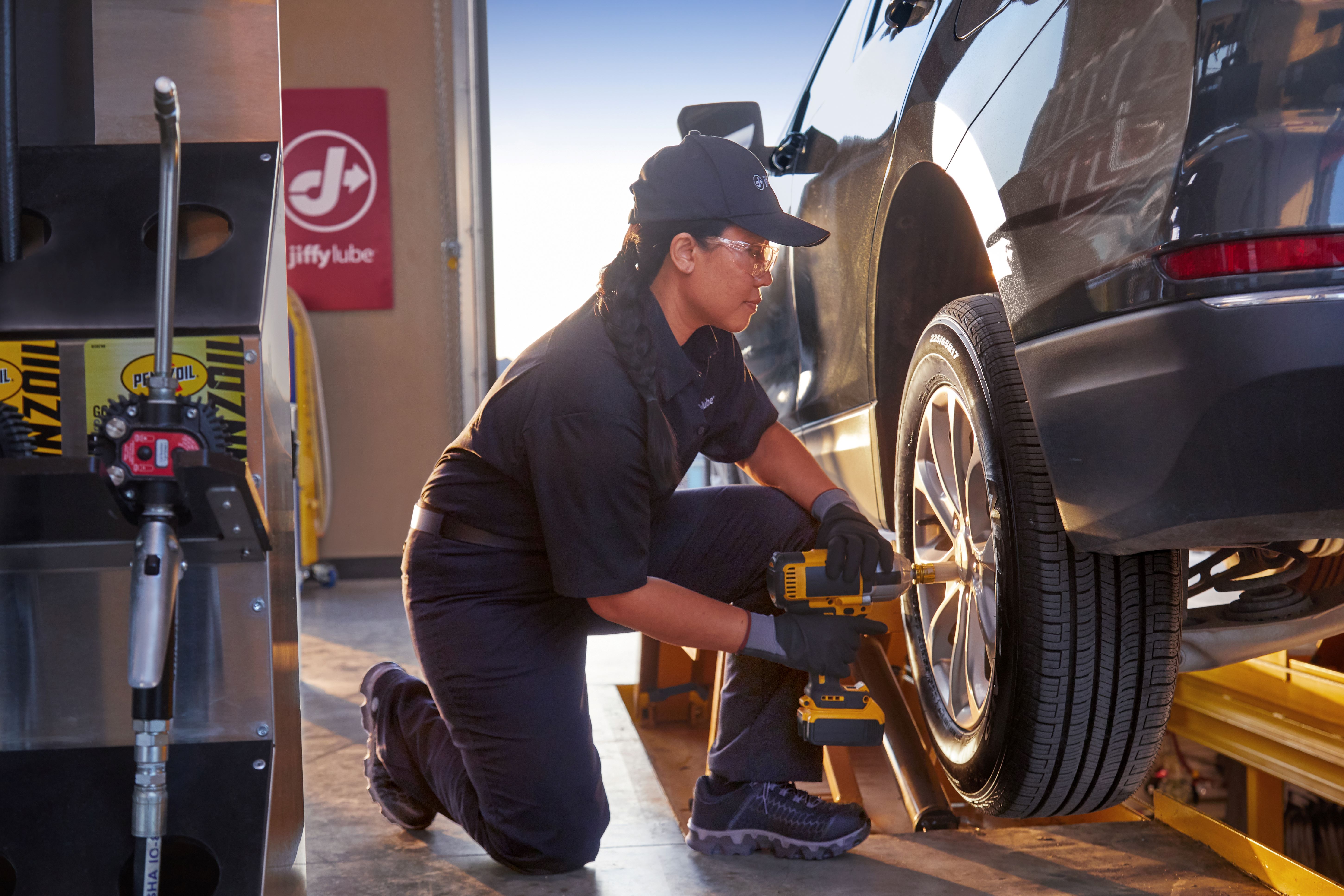Quality Tire Shop Morris: Your Best Location for Tire Demands
Quality Tire Shop Morris: Your Best Location for Tire Demands
Blog Article
Tire Solution: Recognizing Tire Stress Tracking Equipments
Understanding Tire Pressure Tracking Systems (TPMS) is an important aspect of preserving optimal lorry performance and security on the road. With innovations in automotive modern technology, TPMS has actually ended up being a common function in modern-day lorries, giving real-time information on tire stress degrees.

Importance of TPMS
The importance of Tire Pressure Monitoring Systems (TPMS) lies in their ability to boost automobile security and efficiency via real-time tracking of tire pressure levels. Preserving the right tire pressure is crucial for making certain optimum handling, stopping, and general safety of a vehicle. TPMS provides vehicle drivers with instant comments on any type of underinflated or overinflated tires, permitting timely modifications to be made.
Parts of TPMS
Comprising different important elements, a Tire Stress Tracking System (TPMS) functions as an advanced safety attribute in modern-day vehicles. The main elements of a TPMS include sensors, a control module, and a caution sign. Sensors are normally situated in the tire valve stem or connected to the wheel setting up, where they determine tire pressure and transmit data to the control module. The control component processes this info and triggers a caution if it spots considerably low stress in any one of the tires. The caution indication, commonly a symbol on the control panel, alerts the motorist to check the affected tire or tires. Some advanced TPMS versions also show the real tire pressure readings for each tire, offering chauffeurs with real-time info to make certain optimum tire performance and safety and security. By checking tire pressure continually, TPMS assists protect against crashes, minimizes tire wear, and improves gas performance, making it an important part for automobile safety and performance.
Types of TPMS

On the various other hand, indirect TPMS counts on the car's wheel rate sensing units to monitor tire pressure. This system detects underinflation by comparing the rotational rates of the wheels. Indirect TPMS is much less expensive than straight TPMS, as it uses existing sensing units within the car.
While direct TPMS uses extra exact analyses, indirect TPMS is easier in style and usually requires much less Look At This upkeep. Both systems have their benefits and constraints, and the option in between them often depends on aspects such as expense, car make, and individual choice. Recognizing the differences in between these two kinds of TPMS can aid lorry owners make notified choices pertaining to tire upkeep and security.
TPMS Upkeep Tips
Conduct regular checks on the tire pressure levels and contrast them with the TPMS analyses to ensure they are consistent. During tire rotation or replacement, make certain that the TPMS elements are handled thoroughly to avoid any prospective damage. If the TPMS advising light illuminates on the control panel, resolve the concern quickly by inspecting the tire stress and the general system for any type of mistakes.
Benefits of Appropriate Tire Pressure
Preserving proper tire stress, as stressed in TPMS Upkeep Tips, is important for gaining the countless advantages linked with optimum tire pressure levels. Additionally, proper tire stress ensures also tire wear, expanding the life-span of the tires and advertising much safer driving conditions. In verdict, the benefits of proper tire pressure go beyond just tire durability; they incorporate boosted gas effectiveness, enhanced safety and security, far better lorry performance, and overall driving convenience.
Final Thought
Finally, understanding tire stress tracking systems (TPMS) is essential for maintaining optimal tire pressure and making certain lorry safety and security. By acknowledging the importance of TPMS, being familiar with its elements, understanding the various types available, sticking to correct maintenance pointers, and recognizing the advantages of maintaining appropriate tire stress, motorists can enhance their driving experience and extend the life-span of their tires. Proper tire stress is crucial to efficient and risk-free car procedure.

Report this page